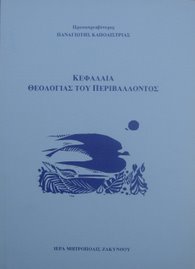— Archbishop Job of Telmessos
The Orthodox Church has been a pioneer in addressing the environmental crisis since 1986. If she did so, it was definitely not out of political correctness or for demagogic reasons, but on the basis of deep theological convictions: as we read in the first book of the Bible, in Genesis, the world has been created good by God (Gen 1), and man has been established as its guardian (Gen 2:15).
The Metropolitan of Pergamon, John Zizioulas, recounts that the involvement of the Ecumenical Patriarchate of Constantinople in the protection of the creation started by reading an article by Lynn White, entitled “The Historical Roots of our Ecologic Crisis” published in 1967 in the journal Science. This article already asserted that the roots of the ecological crisis were theological. According to White, Christian theology was largely responsible for the ecological crisis because of the divine command of the book of Genesis: “Be fruitful, multiply, fill the earth, and subjugate it; and rule over the fish of the sea, over the birds of the air, and over every animal that moves on the earth” (Gen 1:28). Although this article primarily criticized Western Christianity, the Orthodox Church could not remain indifferent to the ecological crisis but had to be self-critical in asking whether Orthodox theology was responsible or not for the ecological crisis, and if it was the case, how to help in finding a solution.
In response to the Lynn White article, Orthodox theology underlines that man is not the processor of the earth, but its steward (oikonomos) and its guardian. Orthodox theology rejects the abuse of natural resources as a misinterpretation of God’s command to rule the world (Gen 1:28) in which White saw the cause of the contemporary environmental crisis.














